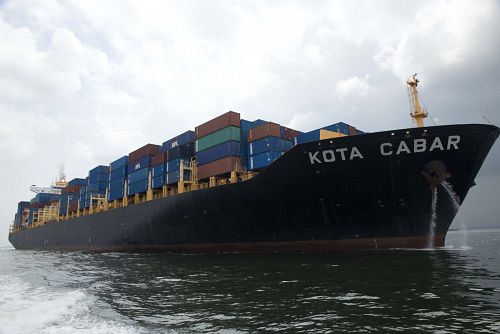Following the recent hazardous cargo accidents at ports and on-board ships, Pacific International Lines (PIL) has signed an agreement to adopt NCB Group’s Hazcheck Detect, a cargo screening tool that detects mis-declared and undeclared hazardous goods in containerised shipments. PIL is the fourth shipping company to install this tool.
More specifically, Hazcheck Detect checks cargo booking details for keywords and includes an industry library to enable detection of suspicious bookings that may be misdeclared or undeclared dangerous goods (DG) and other compliance cargo.
Booking data is sent to Hazcheck Detect via API, checking all information against thousands of complex rules, allowing non-compliant cargo to be identified within seconds rather than days.
“We are delighted that PIL has adopted Hazcheck Detect for their cargo screening,” commented Ian J Lennard , NCB president.
“Our software division, Exis Technologies has over 35 years of dangerous goods knowledge and experience of high volume IT applications for large container lines. They are in the unique position to be able to develop and deliver this ground breaking solution that can benefit the whole of the shipping industry. As more lines begin using the tool, we can make further improvements like adding additional rules to the tool’s industry rules library from which all container lines can benefit,” he added.
In fact, the Hazcheck Detect case management function gives customers greater visibility and control of the inspection process, allowing cargo to be cancelled or rebooked with the correct declarations.
Last-minute changes to bookings, declarations, bills of lading and shipping instructions can be picked up in real-time, preventing suspicious cargo from being loaded onto ships, according to a statement.
“We are pleased to adopt this important industry solution. We have already seen improvements in the amount of misdeclared/undeclared dangerous goods that we are picking up in the booking process using the case management function of the tool,” highlighted Bojarajoo Subramaniam, assistant general manager, operations and procurement, PIL. “The analytics provided gives our staff much greater visibility of what is happening in the screening process, raising standards across the whole company. In just a few weeks of using the tool, we have been able to prevent over 100 containers from being loaded onto our ships that should have been subject to IMDG Code checks. We are proud to be part of a group of container lines that are working together to stop accidents at sea,” Subramaniam concluded.







